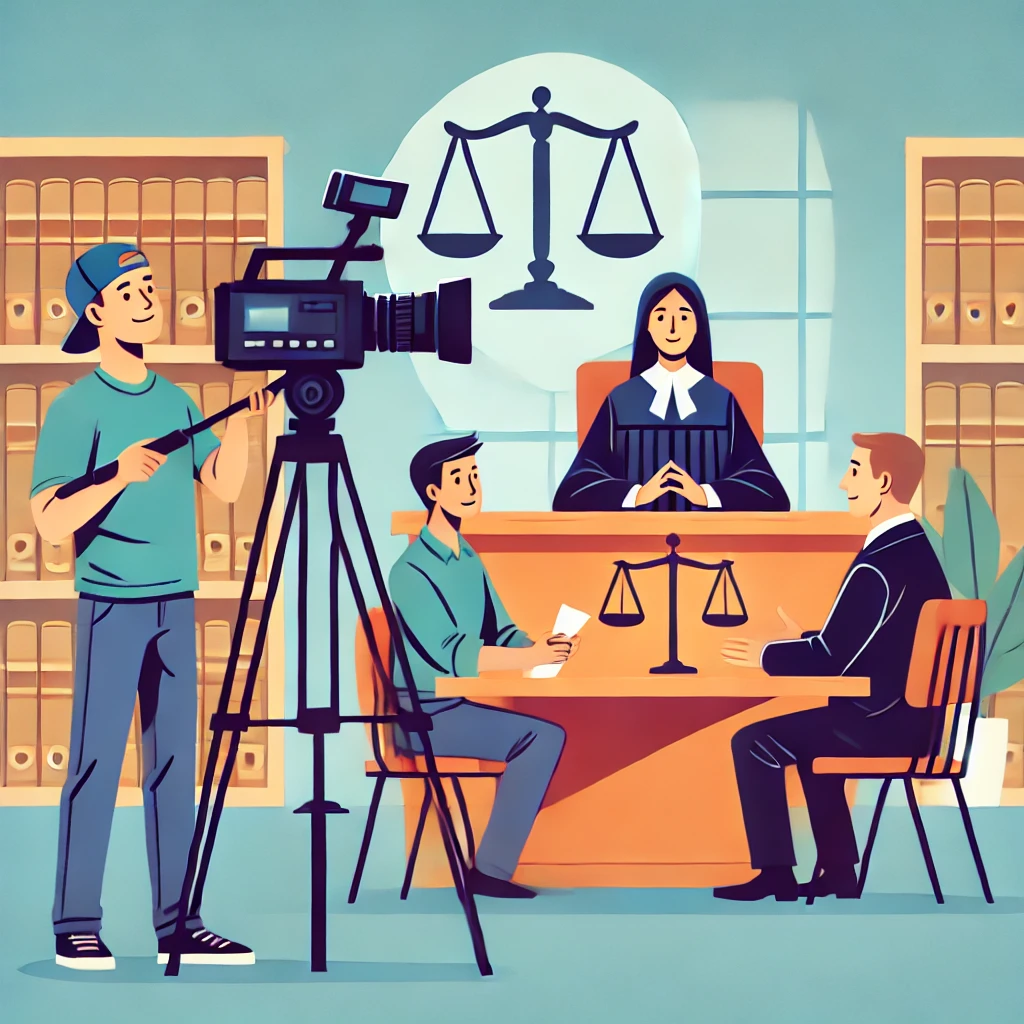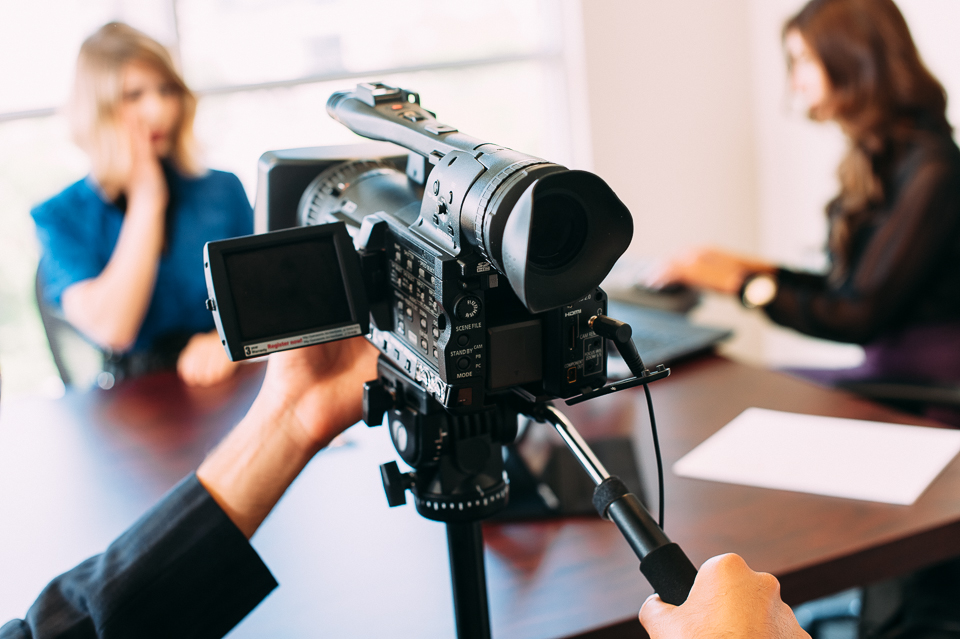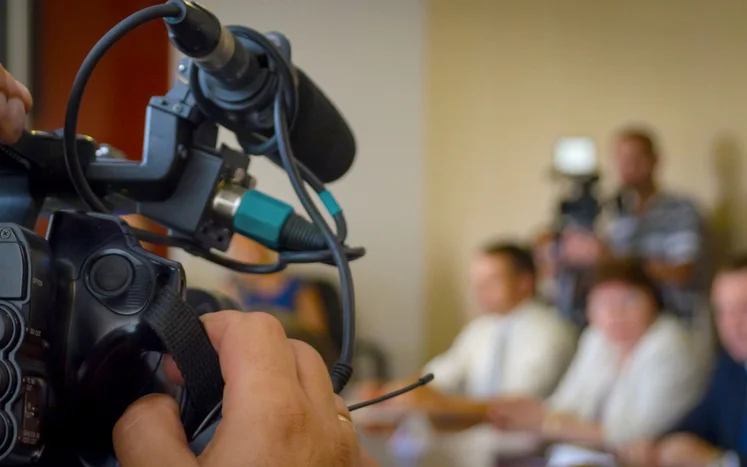Comprehensive Legal Videography for Courtroom Evidence.
Comprehensive Legal Videography for Courtroom Evidence.
Blog Article
The Duty of Legal Videography in Depositions and Tests
Legal videography has emerged as a vital tool in both depositions and tests, offering a complex technique to documenting witness testaments. As lawful specialists progressively identify its worth, it triggers a much deeper examination of just how these aesthetic documents can influence juror understandings and test results.
Importance of Lawful Videography
Lawful videography plays an essential duty in the paperwork and presentation of depositions and trials. This specialized area incorporates technical skills with legal expertise to create a reliable document of proceedings that can dramatically affect case end results. The appearance of lawful videography improves the understanding of witness statement, permitting jurors and judges to observe not only the talked words but additionally the attitude, emotions, and body language of the witnesses.

The relevance of legal videography extends beyond the court room; it also plays an essential role in maintaining evidence for future referral, whether for allures or further legal action. Its assimilation right into the legal procedure is necessary for ensuring a reasonable and exact depiction of the facts, eventually contributing to the quest of justice.

Process of Legal Videography
While recording the subtleties of depositions and tests, the process of lawful videography entails numerous vital actions that ensure top quality, accurate recordings. An expert lawful videographer prepares by reviewing the case materials and understanding the details demands of the deposition or test. This prep work includes acquainting themselves with the individuals and the context, which aids in capturing relevant information.
On the day of the recording, the videographer establishes the required tools, which commonly includes high-def video cameras, microphones, and proper illumination. Guaranteeing ideal angles and audio high quality is essential, as it directly influences the effectiveness of the recording. The videographer communicates with lawyers and participants to develop methods, making certain that every person recognizes the recording procedure.
Throughout the deposition or test, the videographer carefully tape-records the proceedings, paying close attention to both verbal and non-verbal cues. legal videography. This consists of recording the attitude and reactions of witnesses and lawyers. After the session ends, the videographer might modify the footage for clarity and compliance with legal criteria, producing a final product that precisely shows the process for future referral and use in lawful contexts
Advantages in Depositions
The consolidation of videography in depositions uses many advantages that enhance the general procedure of collecting evidence. One primary advantage is the capability to catch witness statements with visual and auditory integrity, offering a much more accurate representation of the witness's temperament, tone, and discover this info here body language. This multidimensional strategy allows attorneys and juries to analyze integrity better than conventional written records alone.
Additionally, videographed depositions function as a powerful device for preserving testimony. Must a witness ended up being inaccessible for test, their taped deposition can be played in court, ensuring that their evidence continues to be easily accessible and relevant. This element significantly lowers the threat of losing vital info that can influence case results.
In addition, making use of lawful videography promotes better preparation for lawyers. Assessing video footage allows lawful groups to analyze and refine their methods, recognizing toughness and weaknesses in their situations. This primary benefit can result in even more engaging discussions in court.
Last but not least, videography improves the total professionalism and reliability of the deposition procedure, instilling confidence in customers relating to the thoroughness of their legal representation. By leveraging modern technology, attorneys can significantly boost the performance of depositions.
Influence On Trials
In numerous trials, the combination of videography can considerably influence the discussion of proof and the court's perception. Lawful videography catches witness statements and essential evidence in a dynamic format, permitting jurors to involve with the material on several levels. This visual component enhances the narration facet of a read here trial, supplying context and emotional resonance that typical text-based evidence may do not have.
Additionally, video recordings can work as effective devices for impeachment throughout interrogation. When disparities develop between a witness's previous declarations and their court room testimony, video clip proof gives an unbiased reference that can guide jurors' viewpoints. This immediacy and quality can reinforce the reputation of a celebration's story while at the same time undermining opposing debates.
Additionally, making use of videography can aid simplify complex details, making it more obtainable to jurors who might have a hard time to realize detailed information provided exclusively with verbal testament. By integrating visuals with acoustic information, lawful videography can boost retention and understanding, inevitably influencing the jury's decision-making process. The impact of videography in trials prolongs past plain appearances; it plays a vital function in shaping the lawful landscape and results.
Future Trends in Legal Videography
As we look toward the future of lawful videography, several arising fads promise to improve its function within the court. One substantial fad is the integration of fabricated intelligence (AI) in video clip evaluation and editing and enhancing - legal videography. AI can improve the process of identifying key moments in videotaped depositions, enabling lawyers to quickly access appropriate content, thereby improving performance in instance preparation
Furthermore, the increase of digital reality (VR) and boosted fact (AR) technologies is anticipated to change exactly how jurors experience evidence. By immersing jurors in a simulated atmosphere, these technologies can offer an extra extensive understanding of intricate scenarios, leading to more informed deliberations.

In addition, the raising demand for remote depositions, increased by the COVID-19 pandemic, will likely proceed. Lawful videographers will need to adapt to new software program and systems to ensure high-quality recordings in virtual settings.
Last but not least, the growing focus on information protection will certainly demand stricter procedures for saving and sharing video clip evidence. As the lawful landscape progresses, lawful videographers have to remain abreast of why not try this out these fads to keep their relevance and performance in the judicial process.

Conclusion
In recap, lawful videography serves an important feature in the judicial procedure, improving the stability of depositions and trials. By recording the nuances of witness statements, this tool not only protects essential evidence yet likewise aids in providing details properly to jurors. The importance of visual paperwork in reviewing reliability and helping with cross-examination can not be overemphasized. As technology continues to progress, lawful videography is poised to more transform its function within the lawful landscape.
Report this page